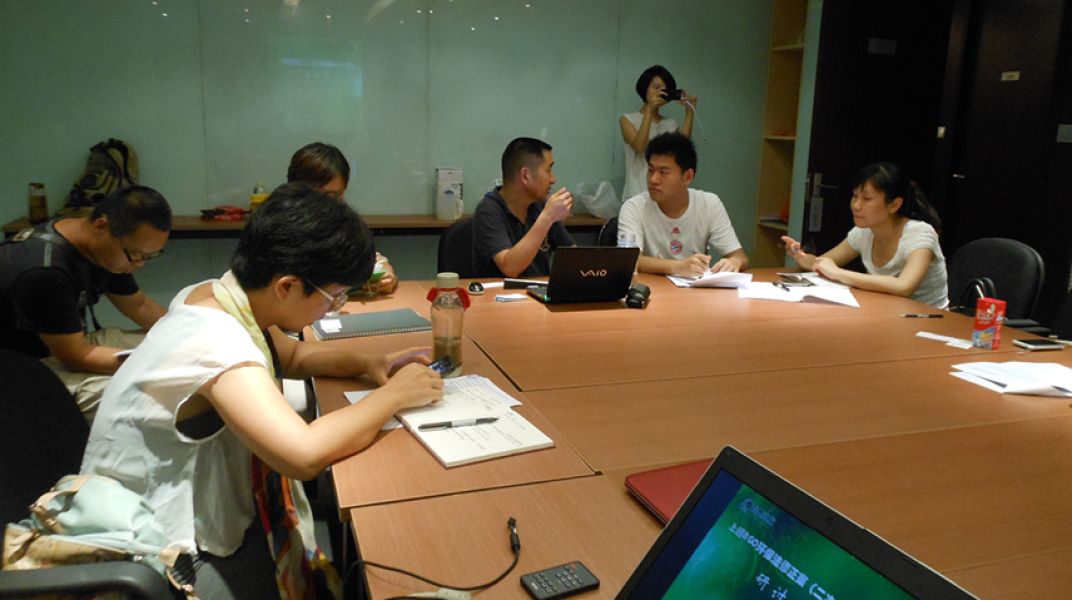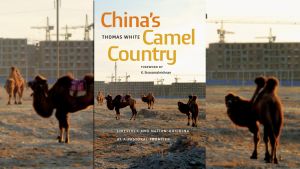
A Post-Covid Spring Has Come
The Latest NGO Boom in China
A boom in the nongovernmental organisations (NGOs) sector was evident in post-Covid China during my fieldwork in April–June 2023. After the Covid-19 lockdowns were lifted and the leadership change was completed in late 2022, there was an upsurge of NGO events, collaborations, and transnational networking. Live events, including NGO conferences and the Beijing Queer Film Festival, were revived. Many of the earliest Chinese NGOs celebrated important anniversaries, including the environmental organisation Friends of Nature (自然之友), which marked 30 years since its foundation; Facilitator (协作者), a migrant labour NGO that has been active for 20 years; and the Beijing LGBT Centre, which operated for 15 years but whose premises were shut barely three months after its anniversary, leaving its future uncertain.
Many researchers identify the Xi Jinping era as a period of repression of civic activism (Zhu and Lu 2022). Indeed, since 2015, Chinese authorities have arrested feminist and labour activists and lawyers and closed some activist organisations. A lot has been written about this, in this journal and elsewhere. Repressive measures, such as NGO closures, still continue.
Apart from outright repression, China’s zero-Covid policy imposed many unintended restrictions on NGO activity. Travel restrictions and lockdowns impeded attendance at face-to-face meetings. With economic stress on donors and fewer funding opportunities for activities, the pandemic financially strained non-profit organisations, leading to a contraction of the sector (China Development Brief 2023). Covid-19 restrictions coincided with the period around the announcement and consolidation of the new national leadership at the Twentieth National Congress of the Chinese Communist Party (CCP)—a time when NGOs, like all citizens, avoid activities that could be considered politically sensitive.
While much attention has been paid to these dynamics, much less has been written about those NGOs that managed to survive and about the political skills they acquired during this period. The information I relay in this essay comes from meetings I attended, from NGOs’ social media posts about their events and campaigns, and from NGO reports and policy proposals in the northern spring of 2023. However, the interviews I cite to illustrate the mindset of Chinese NGOs all precede the Covid-19 pandemic.
Old Folks Are Still There
Based on my observations, most Chinese advocacy NGOs had revived their activities with optimism and enthusiasm by the spring of 2023 when I did my fieldwork. I found the advocacy NGOs I had been following throughout my two decades of research relatively intact and teeming with new energy. Environmentalists, women’s rights activists, sexual minorities, disability rights groups, HIV-focused organisations, and migrant NGOs all organised public events, participated in NGO cooperation, networked with businesses and officials, and gave voice to new political demands. Some Chinese advocacy NGOs have consolidated their presence on global platforms. This active presence, the acquisition of new political skills, and the expansion of NGO networks form what I refer to as a boom among advocacy NGOs.
To construct the big picture of how advocacy NGOs are faring, I tracked well-known first and second-generation advocacy NGOs on the social media platform WeChat. Depending on the issue, the first NGOs appeared in the 1990s or early 2000s. The second-generation NGOs, mostly founded before 2010, are likewise widely known. The post-Covid NGO boom was not limited to these first two generations, but the experiences of subsequent generations may be more varied.
It is not surprising that the early NGOs survived or even strengthened their standing during the Covid-19 pandemic. The first-generation NGOs are known for strong-willed, well-networked leaders committed to finding new nonstate ways to solve sociopolitical problems. Each of these groups carved their own social space in a path-dependent way—none that I know without tensions with the political establishment, which at that time did not understand what NGOs were. The first generation provided the model for later NGOs to follow.
Of course, their experiences cannot be generalised to all NGOs in China. Many less prestigious NGOs do not have the political clout these early organisations have cemented (Li and Wang 2020). Moreover, in the Xi Jinping era, repression and surveillance often have targeted younger generations of activists.
Of the advocacy NGOs, environmental NGOs (ENGOs) came out of the Covid era even stronger, having acquired more skills, global connections, and new environmental laws. Leading ENGOs have advantages not available to most other NGOs. They possess superior empirical and technical information, some of it collected by volunteers. Many environmental problems, such as pollution, are numerically measurable against official standards. This gives credibility to these organisations’ demands, which are often backed by laboratory tests and requests that relevant laws are enforced.
ENGOs can be politically influential also because they have an official counterpart in the Ministry of Environment and Ecology, which is better equipped to fulfill its mandate when ENGOs monitor environmental problems. Prestigious ENGOs can lobby the ministry to back their policy and legislative proposals. As one ENGO leader stated in my interview: ‘They [ministry officials] do not think like us, but we can talk to them.’
While leading ENGOs attract middle-class fee-paying members and funding from domestic foundations, things are very different for labour NGOs. According to my interviews, labour NGOs were drained financially after China restricted foreign funding for NGOs in 2016. Later, they suffered from targeted repression, Covid lockdowns, limited media attention, and meagre public interest.
Several labour rights NGOs and law firms discontinued their WeChat use in recent years. Although not all NGOs use WeChat, this hints that labour rights NGOs were not participating in the post-Covid NGO boom. Nevertheless, the government seems to recognise the need for the services such NGOs used to provide, as migrant labourers are now permitted to join the official trade union.
Migrant NGOs continue to be active in places as diverse as Beijing and Shaanxi Province. Many migrant-run groups were forced to relocate when the areas where migrant labourers lived were demolished. Some—for instance, Beijing-based Mulanhua Kai (木兰花开)—have managed to survive this challenge. On 20 May 2023, the Migrant Workers’ Home (工友之家) held a closing ceremony at its migrant labour museum in Picun Village, on Beijing’s outskirts, which was slated for demolition. For years, the organisation had successfully resisted numerous efforts by the authorities to close its school and cultural centre, but now it faces the challenge of establishing roots in another community.
The situation may be different in Guangdong Province—another centre of labour and migrant NGOs due to its large migrant population and proximity and connections to Hong Kong. There, some migrant NGOs’ WeChat accounts have been blocked. In Hangzhou, the first migrant-run NGO transformed itself into a municipal service (Chu 2022). Bureaucratisation cannot be considered a failure, as official status helps in responding to migrants’ needs.
Women’s rights NGOs appeared very early, with official backing from the official Women’s Federation. However, the alliance did not protect young feminist activists from repression since 2015, perhaps because of the rifts that were already visible within the campaign for the anti–domestic violence law, which was passed that year. However, the third party in the anti–domestic violence movement, women’s rights NGOs, are still around. The first-generation women’s rights NGOs are still active or, if they are not, their retired founders continue to take part in NGO activities. This includes early NGOs promoting women’s studies at a time when, according to young Chinese feminists, gender studies are now under attack in the universities.
While it is an act of stereotyping, it is not too much of a stretch to characterise women’s NGOs from Beijing as political, from Guangdong as promoting women’s entrepreneurial skills to improve their social position, and from the revolutionary heartlands of Shaanxi as cooperating with the Party. In Beijing, a central issue is violence against women, while early NGOs from Shaanxi focused on family and education, at least around Mother’s Day and Children’s Day, when I did my investigation. Nevertheless, Shaanxi women’s NGOs highlighted many non-mainstream issues, including migrant children’s education and the lack of proper social support from the public sector for women to respond to the recent pro-natalist turn in state policy.
Under pressure in 2021, many LGBTQ+ groups changed their WeChat accounts, and sometimes even Chinese names, but continued their work and joined the post-Covid NGO boom. However, the boom proved short-lived for this cohort, as in mid May and early June 2023, some of them were silenced. Yet, LGBTQ+ parties and events were still advertised all over China during Pride Month in June 2023. Many Pride events were planned as semi-private hiking trips or book clubs, others as commercial drag shows and dance parties. While WeChat accounts revealed some forced closures, in other cities, a busy Pride program took place as planned.
Shanghai Pride officially agreed to stop its activities in 2020, although many events that used to take place under its umbrella continued until 2023. While Shanghai Pride can now do less inside China, it does more outside, participating in global and Asian LGBTQ+ networks and events. Zoom was the platform for Pride Talk in 2022 because of the Covid lockdown, but in 2023, Zoom was used again to include LGBTQ+ activists from China, Nepal, and Singapore to share their experiences.
The main shortcoming of the first-generation NGOs is the unclear separation between the organisations and the activities, skills, and networks of their strong charismatic founders. When old NGO leaders retire, they remain active in activities and public discussions using their former NGO identities. I identified activities involving the leaders of some first-generation women’s rights, labour, and environmental NGOs, but could not verify whether their NGOs still functioned as organisations.
Repression Does Not Depoliticise
Contrary to a presumption that greater repression would make NGOs less political, Chinese NGOs emerged from the challenging period with increased political skills. They engaged in more legislative advocacy and participated more intensively in global governance.
Chinese NGOs’ legislative advocacy began with the Domestic Violence Law, passed in 2015 after two decades of advocacy. Another milestone was the Environmental Protection Law, in which the Friends of Nature aspired to include public interest litigation by NGOs. When I participated in an NGO consultation organised by the Friends of Nature in August 2013, the draft law did not yet include public interest litigation by independent NGOs, but the ENGO-written clause was eventually included in the final version of the law passed in 2014. During the pandemic, the Friends of Nature won influential environmental cases in China’s highest court and used its advocacy skills to leave its mark on new laws.
Influential NGOs lobby lawmakers and relevant agencies directly or are consulted by them, while others use established feedback channels in the Chinese political system, such as the public consultations that are customarily launched for each draft law. By requesting individual members to send feedback to the National People’s Congress, the LGBTQ+ community managed to make the Chinese legislature discuss a proposal for same-sex marriage in 2020, and feminist NGOs succeeded in adding more teeth to the 2022 Women’s Rights and Interests Protection Law. This feedback strategy individualises collective political action and does what Fu (2018) calls ‘mobilising without the masses’.
Once a law is in effect, further opportunities to mobilise without the masses open. NGOs publish guidelines for ordinary environmentalists or victims of gender-based violence to use these laws in courts. They instruct in detail which institutions to turn to, which clauses to cite, and where to find support.
Following the model set by influential NGOs, many organisations which did not do legislative advocacy before are doing it now. Even a social workers’ professional association recommended its members send feedback about a draft disability law. To learn political advocacy skills, others have consulted veteran NGOs, including Chinese foundations that are advocating for changes to the forthcoming Charity Law.
Opening Up from Covid-19 to the Outside World
After the end of Covid-19 restrictions, NGOs revived their international exchanges. Many invited foreign guests to speak at their events. ENGOs were building denser networks beyond China, meeting with their European, African, and Asian counterparts to prepare for the COP climate conference, collaborate to expand green energy solutions, and monitor the carbon neutrality of Chinese infrastructure investments under the Belt and Road Initiative. Increasingly frequent international communications are facilitated by Covid-era technologies such as Zoom.
In the spring of 2023, two Chinese ENGOs on my WeChat feed, including a provincial one, became official members of UN subcommittees working on climate negotiations and sustainable development goals. The same ENGOs had earlier participated in China’s climate networks led by government-organised NGOs (GONGOs). GONGOs tended to dominate Chinese NGO participation in international conferences due to their language skills and expertise, but now even some provincial ENGOs have the skills to join transnational governance on their own.
This now-normalised NGO participation in foreign policy arenas is the result of long-term struggle. When I started my research two decades ago, Chinese GONGOs had to persuade the Chinese Government to allow people’s forums—the gatherings of civil society organisations that regularly accompany international summits—when China was hosting them. Now the Chinese Government willingly provides access for Chinese NGOs to its China Pavilions at international climate and biodiversity summits, as global civil society has an established presence at these forums.
When China hosted the 2022 BRICS (Brazil, Russia, India, China, and South Africa) summit online because of the pandemic, Chinese ENGOs organised their own online meetings with NGOs and experts from some or all member countries. China’s growing global influence opens more platforms for Chinese NGOs to grow their global NGO networks, but it also raises African and Asian NGOs’ interest in cooperation with Chinese NGOs. ENGOs now penetrate many central Chinese foreign policy targets for reasons that are initiated either by the NGOs or by the government.
Among Chinese advocacy NGOs, ENGOs are on the frontline to join global civil society because so many international negotiations are happening on climate and biodiversity, but also because these problems are global. While Chinese women or disability rights NGOs are rarely interested in cooperation with regions like Central Asia, for ENGOs, even these regions are important. Chinese ENGOs have a two-decade–long history of transborder activism on rivers flowing through China and neighbouring countries (Matsuzawa 2011). Now Chinese infrastructure investments give similar impetus for cooperation.
ENGO’s motivation for people’s diplomacy is to solve the global climate and biodiversity crises. NGOs are proud to have sustained international cooperation even when Covid isolation, trade barriers, and geopolitical tensions strained diplomatic relations between China and Euro-American powers.
More involvement in foreign policy and legislation brings leading ENGOs closer to the government, with many choosing political influence over ‘autonomy’, if that means working outside governmental processes. In many ways, advocacy by Chinese NGOs resembles that by NGOs in Europe (Levy and Ketels 2021).
More than cooptation, I am concerned about how lobbying with appeals to measurable technical information and the corporate responsibility–type solutions, because this is an effective strategy in China, could bind some Chinese ENGOs to the green technologies, which activists elsewhere accuse of environmentally destructive production processes.
Repression and Continuity
Contrary to some interpretations (Kang and Heng 2008; Han 2018), there is no clearcut distinction in China between issues or organisations that are government-approved and those that face repression. Most issues are not sensitive as such. Repression against some types of Chinese feminism did not prevent the passage of the Women’s Rights and Interests Protection Law—which prohibited sexual harassment and included other feminist demands—by the National People’s Congress in October 2022.
There are no safe areas. No advocacy NGO lives beyond the possibility of repression. Even prestigious ENGOs with political clout experience repression when the authorities decide to block them from publishing about certain investigations or tell them to give up a campaign. That said, even if one case must be abandoned, there are always many other problems in China to tackle, as one of my former ENGO interviewees put it.
On WeChat, repression manifests as retracted posts in my feed about an event or a new report. In these cases, information flows become restricted to a limited group. The insider group will still meet and reports will be circulated on paper among NGOs and with government representatives the NGO wants to lobby. A WeChat message to refund tickets suggests the cancellation of an event. My interviewees have also experienced more extreme repression with even personal communications about a case blocked on social media.
In China, being an established NGO evidently protects activists as the authorities give them early warning about the boundaries they are not to cross (Salmenkari 2018). For NGOs, repression means a loss of effort already put into a case, but it could help them direct their energies to more winnable cases. The looser networks of young media activists and independent lawyers could explain why they meet harsher forms of repression than established NGOs (see Salmenkari 2004).
Leading ENGOs can be so political because, counterintuitively, they are so involved in politics. Some activists explained to me that, when the authorities become concerned, NGOs’ strategy to legitimate their work is to make it more public. The leading ENGOs that make policy proposals openly are seen as transparent by the government and the state does not need to suspect any ulterior motives.
An organisation-centred focus on the repression of Chinese NGOs misses many continuities. The closure of an NGO seldom ends its activities; it can lead to the registration of another NGO or even to the proliferation of NGOs (Salmenkari 2018). If one looks beyond individual organisations, continuity through repression is evident. Informal networks, social positions, and shared missions do not depend on organisations but can be carried from one organisation to another or to an informal group running similar events.
A novel requirement, which Xin and Huang (2022) interpret as state control, is the demand to establish a Communist Party cell within sizeable NGOs. Many NGOs now have a specific Party Cell section on their homepages. Judging from social media, many NGOs hold special events for their Party members or organise workshops with the Communist Youth League, both of which integrate Party Cell activities with regular NGO activities. To celebrate the Communist Party’s anniversary on 1 July, many NGO Party Cells visited a museum to combine Party history and leisure. However, other NGOs hold meetings to study Party documents, publish these documents on social media, or participate in Party-led meetings.
Not all the pressures NGOs face come from the state. Young Chinese feminists’ online activities are vulnerable not only to state repression but also to nationalist and misogynist trolls, who report such activity as inappropriate to block their posts (Liao 2023). The Chinese NGO scene has not avoided the Chinese #MeToo movement against sexual harassment. #MeToo led to the discontinuation of one famous NGO, internal problems within others, and to feminist guidelines to prevent sexual harassment in NGOs. ENGOs sometimes call the police to protect them against polluting factories’ efforts to physically prevent them from collecting evidence about unlawful activities. A lens too focused on the state could fail to see how multivocal, conflictual, and challenging space society is.
Repression Cannot Be Generalised
This article has shown how inadequately repression alone explains what is going on in Chinese civil society, as NGOs can simultaneously experience repression and a boom. Which reality you see partly depends on which NGOs you study and how. My research on what NGOs do focuses on active NGOs, while researchers who focus on repressive methods are more likely to see NGO closures and arrests. Recording repression is important, not least because of its moral and supportive dimensions. However, it is equally important to acknowledge successful NGO struggles for recognition and political influence.
Perhaps, as Keane (2017) argues, authoritarianism is a misleading analytical tool, which, as a binary, restricts our analytical capacity. China studies could learn more from social movement studies, which treats repression and access to policymaking as independent factors (Tarrow 1998). Instead of highlighting either repression or successful advocacy, it would be beneficial to understand better how interwoven the two are in the life of Chinese NGOs.
Featured Image: Chinese NGOs discuss the second draft of the Environmental Protection Law in 2013. PC: Taru Salmenkari.
References





